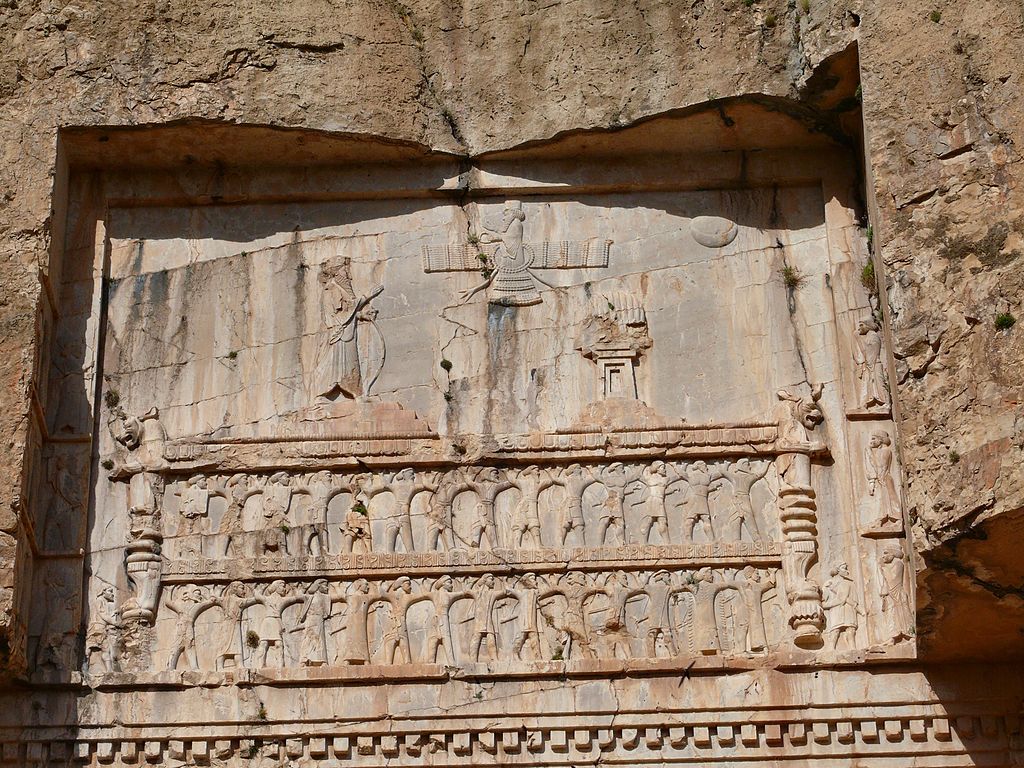
Part 1: Introduction | Part 2: We’ll See Who’s Boss | Part 3: Selfish Aims | Part 4: The King Gets What He Wants | Part 5: A Roll of the Dice
The previous post ends with all the population of Susa perplexed. What is the king thinking, ordering all Jews to be executed?! This is madness!
Of course, the Jews themselves respond even more energetically. Mordecai stands in sackcloth in front of the king’s gate, crying out at the top of his voice (Es 4.1-2). And the cry extends all across the empire, wherever there are Jews to mourn (Es 4.3).
We’re surprised that Esther doesn’t know about the decree, but we probably shouldn’t be. In that culture—in fact, in pretty much all cultures of that day—this is men’s business. No need to worry her pretty little head about it. The queen is told that her cousin is mourning, and she sends to find out why (Es 4.5).
Mordecai has a copy of the decree—it had been widely circulated (Es 3.14)—which he sends to Esther (Es 4.8). She knows there’s a response that might be effective, even in the instance of an unamendable law: she can try to intervene with the king.
She knows in how high esteem Xerxes holds her. She knows her power.
But there’s a risk.
You can see the king—if he calls for you. You can’t just mosey on in and ask for stuff. Not even if you’re the queen.
The king’s a really big deal, you see.
Mordecai too knows that this is risky. But he too knows the power she wields over the king. It’s worth the risk. Mordecai tells her, “This is why you’re in the position you’re in. This is why you’re the queen” (Es 4.13-14).
Now, those are interesting words. Mordecai thinks that history isn’t random. He thinks there’s a purpose to it. Since he’s a Jew, we know quite a bit about his worldview—but he doesn’t go into all that. He simply says that there’s a reason.
And that implies that Xerxes may not be as big as he thinks he is.
And there’s yet another implication in Esther’s reply. She calls for all the Jews in Susa to fast for three days (Es 4.16). Interestingly, she doesn’t call on them to pray; but again, we know Jewish culture, and we know that fasting and praying go together (1S 7.5-6; 2Ch 20.3; Ne 1.4; Ps 35.13; Da 9.3; Joel 1.14). What does Esther expect nationwide fasting to accomplish?
Like Mordecai, she doesn’t think history is random either.
After the three days of fasting, Esther works her plan. She puts on her royal apparel (Es 5.1)—this will show respect for the king’s presence, but it will also certainly impress on him all the strengths he knows she has—the reasons he chose her as queen in the first place.
She knows he will not dismiss her.
And he doesn’t.
He welcomes her into the throne room, and he asks her request. He knows she must want something; you don’t drop by the throne just to ask how the king’s day is going.
Esther doesn’t pour her troubles all over him. She’s going to give him the story just a bit at a time.
She’s clever, and she’s worked the tactics all out ahead of time.
She says nothing about the Jews, or the decree, or Haman’s manipulation of the mighty king.
She just invites the king to dinner.
Oh, and Haman too (Es 5.4).
The king’s delighted. A beautiful woman, and food too! What could be better?
And when he is well fed, he turns to the queen and asks again what she wants. He may just want to bestow gifts on her as signs of his approval and affection, or he may know that she wouldn’t have come to the throne just to invite him to dinner. He has the good sense to ask again what she would like him to do for her.
And Esther surprises us again.
Again, she doesn’t get down to business about the decree.
She invites the king and Haman to another dinner. Tomorrow (Es 5.8).
Like Sheherazade, she knows the power of anticipation.
Till “tomorrow.”
Part 7: Any Old Tablet | Part 8: Mental Explosion | Part 9: What Goes Around | Part 10: The Missing Piece
Photo credit: Xerxes tomb at Naqsh-e Rostam (4615488322) – Tomb of Xerxes I – Wikipedia

Leave a reply. Keep it clean.